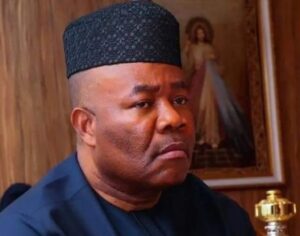CURRENT REPORT BLOG President Bola Tinubu has taken measures to address the challenges arising from the recent removal of fuel subsidy by his administration. In an effort to alleviate the impact on Nigerians, he has unveiled several palliative programmes aimed at supporting different sectors of the economy. The initiatives, funded by savings from the removal of fuel subsidy and a World Bank loan, target manufacturing, micro, small and medium-sized enterprises (MSMEs), agriculture, mass transit, and salary reviews. This CURRENT REPORT BLOG post provides an overview of these programmes and their potential benefits.
Palliatives for the Manufacturing Sector
To bolster the manufacturing industry and stimulate economic growth, President Tinubu announced a N75 billion palliative programme. Within a nine-month period from July 2023 to March 2024, 75 enterprises with great potential will receive funding. Each of these enterprises can access N1 billion credit at 9% per annum, with repayment periods of up to 60 months for long-term loans and 12 months for working capital.
Support for MSMEs and Informal Sector
Recognizing the significance of micro, small, and medium-sized enterprises (MSMEs) and the informal sector in driving economic growth, the President declared a N125 billion fund for this crucial segment. Out of this amount, N50 billion will be allocated to provide conditional grants to one million nano businesses by March 2024. Additionally, 100,000 MSMEs and start-ups will receive funding ranging from N500,000 to N1 million at 9% interest per annum, with a repayment period of 36 months.
Boosting Agriculture
The agricultural sector will receive N200 billion to support the cultivation of 500,000 hectares of farmland, focusing on rice, maize, wheat, and cassava crops. This initiative aims to enhance food security and empower small-holder farmers, while also leveraging private sector players with strong performance records in agriculture.
Cost-Efficient Mass Transit
As part of the government’s mass transit programme, N100 billion will be invested to acquire 3,000 units of 20-seater Compressed Natural Gas (CNG)-fuelled buses. These buses will be distributed to major transportation companies in different states based on travel intensity per capita. The transport companies can access credit at 9% per annum with a 60-month repayment period.
Salary Review
President Tinubu expressed his commitment to working with labour unions to introduce a new national minimum wage for workers. The goal is to provide better compensation for workers and enhance their standard of living. Budget provisions will be made for the implementation of the new wage once agreed upon.
Savings from Subsidy Removal
The President highlighted that the removal of fuel subsidy has resulted in saving over a trillion Naira within a little over two months. These savings, which were previously benefiting smugglers and fraudsters, will now be redirected to support various sectors, including education. Tinubu assured Nigerians of affordable education and the provision of loans for higher education students.
Conclusion
President Bola Tinubu’s palliative programmes aim to mitigate the impact of the fuel subsidy removal on Nigerians and support various sectors of the economy. Through these initiatives, the government seeks to drive economic growth, empower businesses, bolster agriculture, improve mass transit, and enhance workers’ welfare. The nation looks forward to reaping the benefits of these measures and achieving a more stable and prosperous future.














